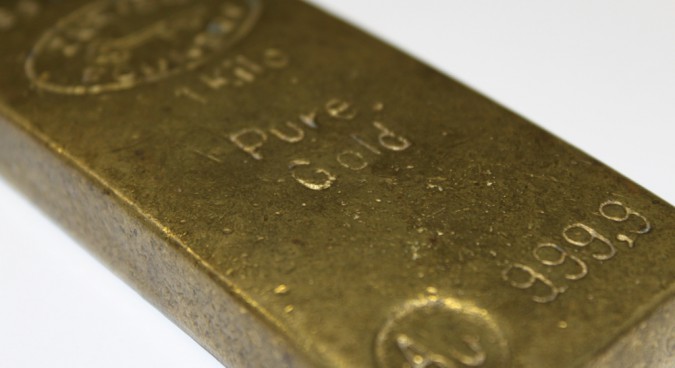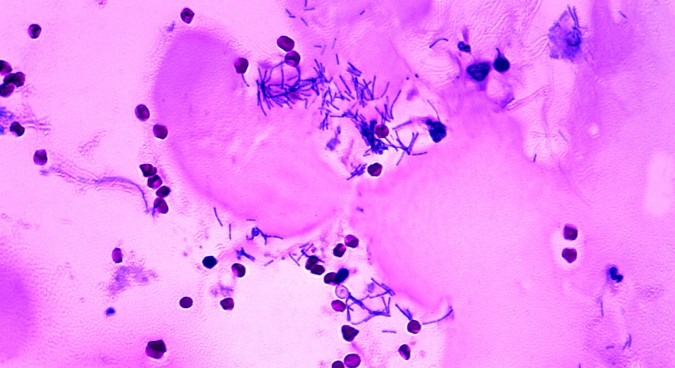Israel ran afoul of UN sanctions earlier in December when the country’s Tax Authority was
questioned on gold exports to North Korea which reportedly took place in 2011.
Speaking to Israel’s Knesset’s Economic Affairs Committee, Tax Authority export director David Khuri gave a mixed bag of answers on questions relating to breaches of UN luxury good sanctions, sometimes giving incorrect dates and information.
Khuri called the gold shipments – which were valued at around $347,000 – a “disgrace” to country, telling the committee they were unearthed by the UN and that further export attempts had since been blocked.
“To my regret there was export of gold, and regretfully (the UN) discovered this and we were required to give explanations,” Khuri said in comments carried by Haartez.
The export director however then made a couple of claims apparently at odds both with the data contained in the UN Comtrade
database, and that in Isreal’s own
numbers (from which the UN numbers are generated).
“There has been almost no exporting of gold to North Korea sonce (sic) 2011, and our exports only included books and dental implants,” Khuri added, according to another local news outlet
ynetnews.com.
According to the trade databases however, the gold was not exported in 2011, but in 2013 and no other gold exports after 2006 are listed. Further exports over the last four years also include potentially sanctioned organic chemicals, wine (a real bargain if trade figures are to be believed at 1600 litres for $2000), aluminium, printing machinery, articles of wood and other miscellaneous chemical products.
The total listed value of the trade is $853,000, mostly on the back of the gold and chemicals shipments.
When contacted by NK News, the Tax Authority stood by the numbers.
“Mr. Khuri presented to the committee members accurate data, according to the information found in the customs’ database, regarding the subjects he was asked about,” the organisation’s senior media officer Iris Dor-On said , despite the database indicating otherwise.

Israel’s customs database
WEIGHT IN GOLD
Whether or not certain trades breach sanctions and how seriously, can often depend when they took place. North Korea’s nuclear and ballistic programs trigged fresh rounds of UN sanctions between 2006 and 2013, with later designations often building on earlier ones.
The most recent resolution in 2013 included a more defined list of luxury goods which previous documents lacked. After the third nuclear test, the UN Security Council also decided to try and further squeeze Pyongyang’s elite, by limiting exports of precious metals, stones and luxury vehicles.
“(The resolution) reaffirms the measures imposed in paragraph 8 (a) (iii) of resolution 1718 (2006) regarding luxury goods, and clarifies that the term ‘luxury goods’ includes, but is not limited to, the items specified in annex IV of this resolution,” article 23 of Resolution 2094 reads.
Providing the North Korean government with gold however is problematic for another reason. Under the increasingly watchful eye of the U.S. Department of Treasury’s Office of Foreign Asset’s Control (OFAC), the dollar has become a risky currency for the DPRK.
Gold could be used as way to circumvent the restrictions and allow North Korea to trade more freely. Resolution 2094 urges UN member states to monitor transfers of bulk cash to the DPRK, expressing “concern that transfers to the DPRK of bulk cash may be used to evade the measures imposed in resolutions 1718 (2006), 1874 (2009), 2087 (2013).”
“Gold is another form of payment that evades the formal financial system. UNSCR 2094 issued calls to be vigilant for and restrict the DPRK’s use of alternate means of payment, particularly bulk cash transfer. If the DPRK can get its hands on gold it will have a way to trade with most,” Andrea Berger, deputy director of proliferation and nuclear policy at RUSI told NK News.
The earlier resolutions did not call for the same vigilance on bulk cash or financial transfers, so gold exports occurring in 2011, instead of after the publication of Resolution 2094 in March 2013 could potentially run up against different sanctions.
LOOPHOLES?
Further complicating the sanctions picture is how well UN member states implement the Security Council’s resolutions into their national legislation. The UN itself does not enforce trade relationships between countries, nor prosecute companies or individuals that don’t pay attention to sanctions.
Local media in Israel also reported on the oddity of the exports occurring nearly a decade after the first DPRK designations. According to Harretz, the long delay was in translating UN sanctions into Israeli law was remedied on December 9 this year.
“A representative of the Economy Ministry’s legal department, Dalit Rennert, presented the order and said it would allow supervision of exports to North Korea and set that the export will be allowed only with a license. Likewise, the order sets a list of luxury products banned from exports,” Hareetz reported on the same day.
The lack of previously existing legislation was blamed for the loophole, which subsequently allowed the export of the gold with little apparent oversight. Israel’s Tax authority told NK News they were only an “enforcer” when answering questions on why no action was taken on the exports until 2015, adding they did not deal with issues regarding to UN sanctions.
“No such permits concerning goods, services and technology referred to in Council resolutions 1718 (2006) and 1874 (2009) have been given,”
But the claim that Israel had no laws to back up sanctions seems in tension with what they told the UN in 2010. Member states update the Security Council on the
implementation of various sanctions and resolutions and according to the UN’s website, Israel filed two implementation reports in 2007 and 2010.
The second
document implies that at least some legislation was put in place after the passage of resolution 1874 in 2009.
“In accordance with its domestic legislation, transactions or transfers involving goods, services and technology referred to in Council resolutions 1718 (2006) and 1874 (2009) require official authorization, by means of a permit, from various governmental authorities,” it reads.
“No such permits concerning goods, services and technology referred to in Council resolutions 1718 (2006) and 1874 (2009) have been given,” it adds.
The wording appears similar to reported by Harretz on December 9, which also claimed a license would be required for exports to North Korea.
“The Israeli Ministry of Foreign Affairs has duly informed all relevant domestic authorities of Council resolution 1874 (2009), together with a reference to its requirements and the additions it makes to the previous resolution, with a view to ensuring the implementation of its obligations,” the report continues.
The Tax Authority and Ministry of Foreign Affairs declined to comment on the 2010 implementation report, or why there was no enforcement of the “domestic legislation” alluded to in it, which should have covered the (albeit somewhat vague) definition of luxury goods outlined in the 2006 resolution.
ALL THAT GLITTERS?
Other media reports on the exports mentioned David Khuri briefly spoke of other exports aside from the gold, but gave few details.
One potential eyebrow raising export which went unmentioned was the 2010, $56,000 shipment of “organic derivatives of hydrazine/of hydroxylamine”. The former chemical –when above a 70 percent concentration – is mentioned in the UN sanctions list 19 times, given its various spinoffs can be used as fuel for small rockets.
“China currently uses hydrazine as propellant … North Korea, like China, has been using hydrazine for rocket propellant as well. (It) is not used in large rockets but still in small rockets to put satellites in orbit,” Kwon Se-jin, a professor at the department of aerospace engineering at South Korea’s KAIST University told NK News.
The other chemical, hydroxylamine, is not designated by the UN, though could potentially be used in similar applications.
“Hydroxylamine nitrate is one of the candidates under research to replace hydrazine in the future,” Kwon added.
However tracking down the exact nature of the shipment is challenging. Custom’s databases rarely include information on the companies actually conducting the trade, nor would they be under any obligation to talk about a sanctions breaching export. Also, while some business directories list exporting companies by sector, membership is not obligatory so lists are not exhaustive.
The problem extends to other potentially sanctioned trades and countries. Israel is not the only exporter of hydrazine/hydroxylamine to North Korea since 2006. Membership of that dubious club also belongs to Italy, India and China, with the latter the only country to send shipments in 2014, though to this day Israel’s delivery remains the largest.
The problem extends to other potentially sanctioned trades and countries
The DPRK however may not need to import hydrazine above 70 percent concentrations, and could also perfectly legitimately order less concentrated or unsanctioned variants for more benign uses.
“Nearly every country working on space development projects domestically produces the main chemicals used in aircraft (or) space rockets. And I assume that applies in North Korea’s case too. They would not rely on hydrazine imports from abroad,” Kwon continued.
Nonetheless, despite a good probability the export was not in breach of sanctions, the Ministry of Foreign Affairs does not appear willing to clarify the shipment.
“We don’t comment on this issue,” they told NK News.
Additional reporting by Jiwon Song



